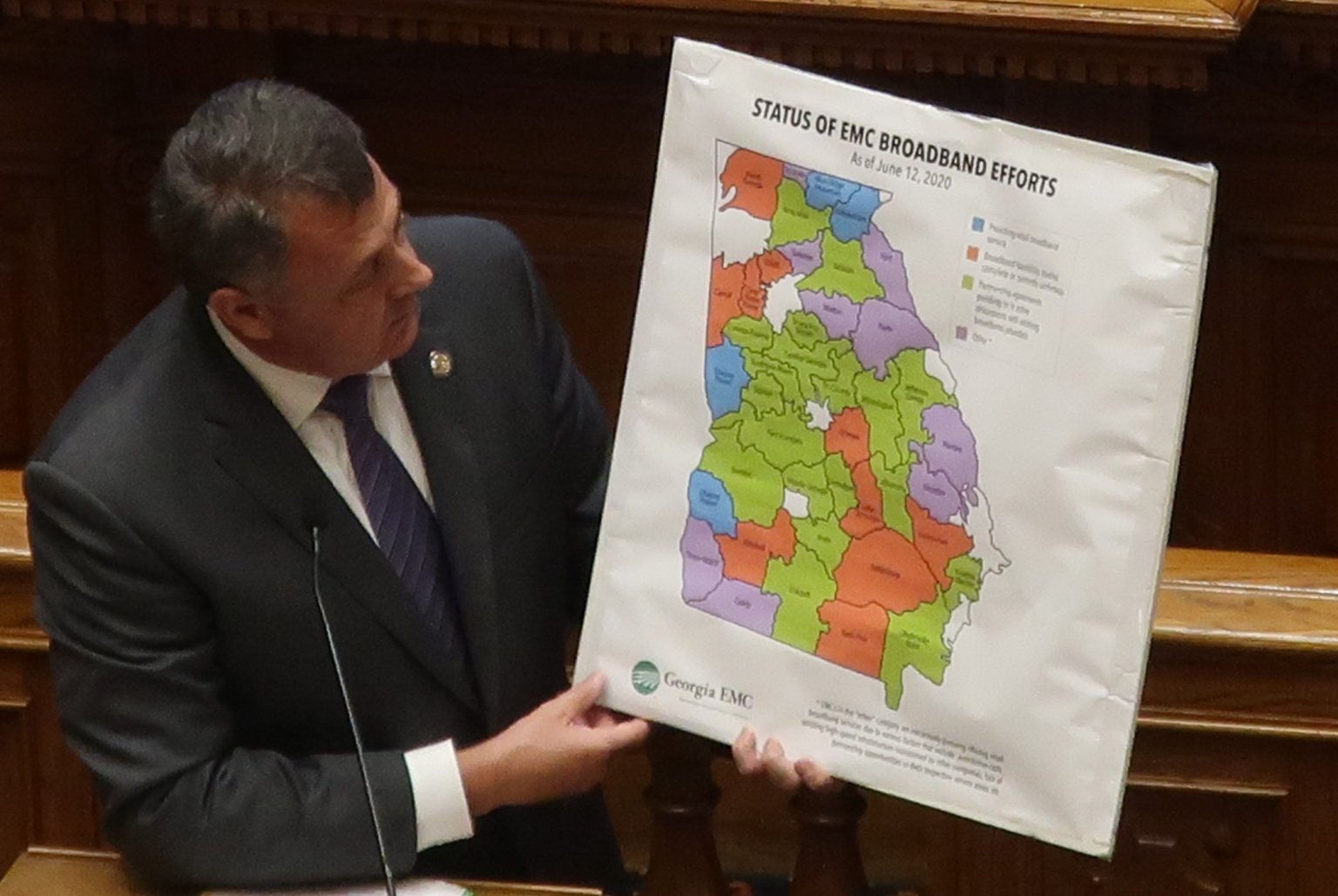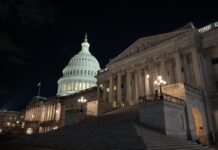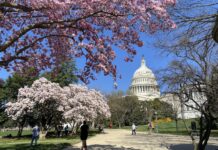
Georgia’s Public Service Commission is close to taking control of regulating the fees local electric membership co-ops can charge internet companies to use their utility poles to extend broadband into rural parts of the state.
The commission regulates rates for Georgia Power and other utilities, and has the expertise to determine what EMCs should charge for pole attachments, said Sen. John Kennedy, a Macon Republican, ahead of the chamber’s 31-22 vote to send the proposal to Gov. Brian Kemp.
Lawmakers disagreed over how effective lower fees will be in solving the vexing problem of unreliable internet service in rural Georgia.
In some communities, an EMC is charging three times as what Georgia Power does in the same area and state regulators should be able to determine what’s the fairest rate, Kennedy said.
“This bill is not a silver bullet to take care of and solve all broadband problems in Georgia,” Kennedy said. “It is not the panacea to make sure that rural Georgia gets fiber. The question is, does this legislation move it in the right direction.”
Sen. Lindsey Tippins, a Marietta Republican, said a pledge from Comcast to invest $20 million in rural broadband didn’t justify passing the bill since Georgia’s EMCs would likely lose more money than that.
And if the nonprofit membership co-ops get less money in pole attachment fees then customers might face higher electric rates to offset the loss, said Dahlonega Republican Sen. Steve Gooch.
“I do not believe that taking money from a bunch of nonprofit boards that we elected at home, take money from them, and shift it to a bunch of private for profit companies,” Gooch said. “Go look at public financial disclosures. These companies are making billions of dollars in profits every year.”
Georgia lawmakers have tried for years to come up with incentives to entice companies to improve the often slow and unreliable internet access in rural communities, including passing legislation allowing EMCs to provide broadband service.
About 1.6 million Georgians do not have access to high-speed internet, a divide that hurt students this spring when the COVID-19 pandemic forced many of them to complete schoolwork online when school districts closed their classrooms.
In some rural communities, wireless satellite service is the primary option for residents to access the internet and stormy weather can interfere with it.
It’s going to take much more than paying less to use an EMC’s utility poles to lure telecom companies into making the investment needed so that underserved rural areas get close to the same broadband speed found in Georgia’s larger cities, Gooch said.
“The problem we have with rural broadband is going to take a decade to fix,” he said. “And it’s going to take hundreds of millions of dollars to bring it to a level that is satisfactory.”







